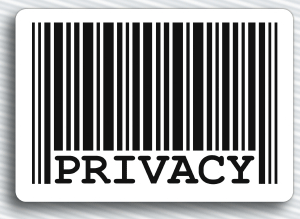"It's one more direction toward a police state," said Ilka Schroeder, a Green Party member of the European Parliament who drafted an opinion for the Industry Committee opposing the expansion of surveillance.
"They restrict peoples' rights to demonstrate against fortress Europe, as we saw in Gotenborg when street police shot at people," she said. "Now they are also trying to limit any kind of e-protest. By this surveillance they also of course go against political opponents."
The agreement reached Wednesday in Luxembourg by the Telecommunications Council -- representing all 15 EU nations -- could, among other things, mandate that Internet service providers store logs for up to seven years, which police agencies could obtain without too much trouble.
Under current EU law, ISPs are directed to store network data only so long as necessary for billing. The new directive concerning the processing of personal data and protection of privacy would free member nations to pass their own laws to direct network and ISPs to save the data.
"All that information will be available without a court order," said Caspar Bowden, director of the Foundation for Information Policy Research in Great Britain.
"Police may be able to get that data simply by authorizing themselves," he said. "Once the authorities have this data, they potentially have a map of both your private and business relationships and associations. There is really no restriction on how this data may be used or how long it may be kept."
Schroeder agreed.
"Their aim is to be able to survey any communication, especially any electronic communication, and then to pick up on anyone who to them is a suspect," she said. "That basically makes everyone a suspect.
"This is the final aim. What they are trying to do is limit the data protection laws that are there in the EU and the member states. To force Internet service providers to be collaborators with the police, it opens one door for a general surveillance of communication."
But no clear policy will emerge until the European Parliament takes up the matter in September. Opposition is high in Parliament to expanding the reach of police access to such information.
"It is quite clear that as things stand at the moment, Parliament has not given anything like an agreement to the document which was agreed by council yesterday," said a senior European Parliament staffer who spoke on condition of anonymity.
"There are two issues with which Parliament has a particular problem, and one of those is the proposal regarding data retention. Parliament will vote a certain number of amendments and negotiate with the Belgian presidency to try to reach some sort of agreement."
Earlier this month, the European Union's advisory body on data protection and privacy issues -- the Article 29 Data Protection Working Party -- came out strongly against expanding police access to such data in a letter to the president of the Council of the European Union.
"It is not acceptable that the scope of initial data processing is widened in order to increase the amount of data available for law enforcement objectives," read the letter, signed by the chairman of the group, Stefano Rodota.
"Any such changes in these essential provisions that are directly related to fundamental human rights would turn the exception into a new rule. Systematic and preventive storage of EU citizens' communications and related traffic data would undermine the fundamental rights to privacy, data protection, freedom of expression, liberty and presumption of innocence. Could the Information Society still claim to be a democratic society under such circumstances?"
The move this week was inspired in part by lobbying from Great Britain, which contends that police agencies need wide access to private data if they are to combat such pressing problems as child pornography, money laundering and racist hate-mongering.
The Green Party's Schroeder said she's not at all sure how the European Parliament debate on the topic will go.
"I hope we can manage in plenary to make a strong stand to fight for data protection, and to make a strong stand against this council proposal for more surveillance," she said. "I'm not sure whether there will be a majority to defend this general infringement and undermining of the EU data protection rules."
She said it's fitting that the vote is expected to be held in September at the same time as the vote on the final report of the European Parliament's temporary committee on the U.S. surveillance system known as Echelon.
"I see a direct link to Echelon," she said. "There you can see that the Parliament basically criticized the United States ... for surveying too effectively, and basically with that report it is trying to legitimate European Union surveillance."






